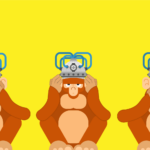Young climate activists, artificial intelligence experts and 25 reasons for hope
By Matt Field | October 16, 2019
 Credit: Makizox via Wikimedia Commons. CC BY-SA 4.0.
Credit: Makizox via Wikimedia Commons. CC BY-SA 4.0.
While many news stories focus on the pitfalls of technology, Wired did something a little different and put together a cover story of 25 people and groups who the magazine says are “racing to save us.” For the most part they’re working on or with technology, pointing out its flaws and pointing towards solutions.
From climate change to the growing power of big tech behemoths, the world is facing any number of challenges, in some cases existential ones. The innovations that facilitate our lives are frequently double edged swords. The power plants that quench our thirst for electricity are spewing planet warming emissions into the atmosphere. The facial recognition algorithms that can help organize smartphone photo collections also have inherent biases against women and minorities. Wired profiles a few of the people working on these and other issues.
Joy Buolamwini. In 2015, when she was a master’s student at MIT, Joy Buolamwini was using face-tracking software to produce an art project when she realized the program wouldn’t recognize her face as a face. Buolamwini, a black woman, had to put a white mask on to get the system to recognize her. That discovery pushed her to consider how facial-analysis systems might be biased against people like her. Since then, she’s published high-profile research on the biases of programs produced by some of the world’s biggest tech companies and drawn attention to how the technology can be misused.
Guillaume Chaslot. When Guillaume Chaslot worked at Google, the artificial intelligence expert helped design algorithms that could boost the amount of time people spent watching YouTube by recommending them content based on viewing history. While Chaslot worried that the algorithms he was helping to develop could trap people in so-called filter bubbles of content that legitimized a single world view, it wasn’t until he left the company that he realized just how problematic the massive social network’s recommendation engine really was: It was pushing political conspiracy videos on people and racking up millions of views. He publicized his findings and founded a website called AlgoTransparency, thereby helping to put pressure on YouTube to depress the spread of conspiracy theories.
The Juliana v. United States plaintiffs. When Kelsey Cascadia Juliana was 15, she sued the governor of Oregon, demanding a climate-action plan. A few years later in 2015, she and 20 other young people sued the federal government in a suit titled Juliana v. United States; it’s still working its way through the court system. Juliana and her co-plaintiffs have spent years seeking a sweeping ruling that would guarantee the right to a stable climate. While that may be an uncertain proposition, the group has likely inspired other climate activists, including Greta Thunberg, who filed a complaint in the United Nation’s against five countries for not doing enough to stem climate change.
Wired’s 25 world savers are working on different issues of varying severity, but like Cloudflare CEO Matthew Prince, who booted prolific hate platform 8chan off the internet, they’ve all done something to make the world a bit better than it was, or at least make its inhabitants more aware of how grave the challenges really are.
Publication Name: Wired
To read what we're reading, click here
Together, we make the world safer.
The Bulletin elevates expert voices above the noise. But as an independent nonprofit organization, our operations depend on the support of readers like you. Help us continue to deliver quality journalism that holds leaders accountable. Your support of our work at any level is important. In return, we promise our coverage will be understandable, influential, vigilant, solution-oriented, and fair-minded. Together we can make a difference.














